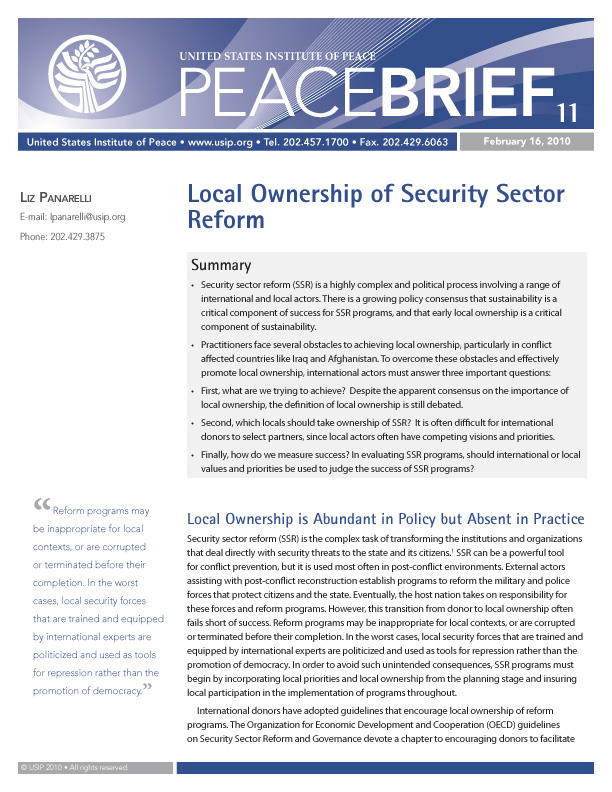Security sector reform (SSR) is a highly complex and political process involving a range of international and local actors. There is a growing policy consensus that sustainability is a critical component of success for SSR programs, and that early local ownership is a critical component of sustainability.

Summary
- Security sector reform (SSR) is a highly complex and political process involving a range of international and local actors. There is a growing policy consensus that sustainability is a critical component of success for SSR programs, and that early local ownership is a critical component of sustainability.
- Practitioners face several obstacles to achieving local ownership, particularly in con flict a ffected countries like Iraq and Afghanistan. To overcome these obstacles and e ffectively promote local ownership, international actors must answer three important questions:
- First, what are we trying to achieve? Despite the apparent consensus on the importance of local ownership, the de finition of local ownership is still debated.
- Second, which locals should take ownership of SSR? It is often di fficult for international donors to select partners, since local actors often have competing visions and priorities.
- Finally, how do we measure success? In evaluating SSR programs, should international or local values and priorities be used to judge the success of SSR programs?
About This Brief
This report summarizes views expressed at a public meeting of USIP’s Security Sector Reform Working Group on "Local Ownership of Security Sector Reform (SSR)" on December 15, 2009. Panelists included Timothy Donais, editor of "Local Ownership and Security Sector Reform," published by the Geneva Centre for the Democratic Control of Armed Forces, Adedeji Ebo, chief of the SSR Unit at the United Nations, Marc Cohen, co-author of "Protect and Serve or Train and Equip?," published by Oxfam America, and Aleisha Arnusch, lead SSR researcher at the Pearson Peacekeeping Centre in Canada. Robert Perito, who directs USIP’s Security Sector Governance Initiative, moderated the panel.